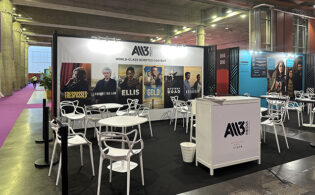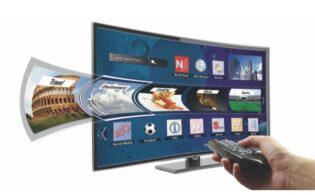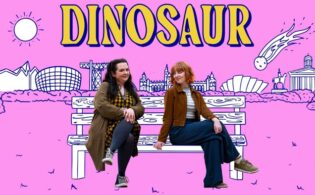PREMIUM: Louise Pedersen, CEO of all3media international, talks to World Screen about continuing to find new financing models for scripted and unscripted shows.
WS: How have you grown your scripted output in recent years?
PEDERSEN: We wanted to grow the business and broaden the scripted content that we were bringing to our international buyers. We commissioned some research into how our scripted catalog was perceived by our buyers, and it backed up the fact that we needed to offer a wider range of scripted shows from detective procedurals to contemporary thrillers to high-concept, heightened drama, for example.
As a result of that, we doubled our investment into scripted content in 2017 and sought to invest in a sweep of dramas that all shared some common denominators: original ideas with interesting talent attached—writers and directors from top-quality production companies. We are now starting to deliver the shows that resulted from this investment push. We have some key first-look relationships, both within the all3Media group and with a number of independent production companies, and these are incredibly valuable to us. The extra investment helped us finance more shows from these partners but also form some new relationships in the scripted area. Examples are The Feed, launching as the major screening at MIPTV, from Studio Lambert; the new brand extension of Miss Fisher’s Murder Mysteries, Ms Fisher’s Modern Murder Mysteries, from Australian producer Everycloud; as well as our new partner in Australia, Relover, and their Diary of an Uber Driver.
WS: Are you relying on co-financing to get some of these higher-end projects off the ground?
PEDERSEN: Yes, in most cases. Our financing model has evolved over the last couple of years. There is the traditional distributor model; a U.K. broadcaster finances 80 percent of the budget or so, and then the distributor advances the remaining 20 percent and of course, we still do that. There’s the co-pro model where we bring in another broadcaster to partner with the U.K. broadcaster, and we cover the remaining gap. But for us, there is a new co-commissioning model which we are just starting to explore, for example, with a show called Blood, written by Sophie Petzal. In that case, we read Sophie’s wonderful script; it was an idea that really resonated with us, and we loved the production team behind it, but it wasn’t being commissioned by a broadcaster in the U.K. Virgin Ireland came onboard as the commissioner and we financed the rest of the production, bringing in other key broadcast partners like Channel 5 in the U.K., once it was greenlit. We have done a couple of those where we have financed the lion’s share ourselves. It’s a different model of how we fund shows for which we believe there is a market. We will probably look at that type of arrangement for two or three shows a year.
We’re looking at that model in unscripted and entertainment programming as well. Particularly with entertainment, the market is moving towards a fifty-fifty funding model around pilots on big-budget shows. So we will look at funding some smaller pilots or tasters ourselves for ideas that we think will travel. But the key thing in all genres, especially in scripted, is that we are running a number of different models from traditional gap financing to co-financing to the co-commissioning model.
WS: What are some of your new scripted series?
PEDERSEN: We’re just greenlighting another detective procedural show that we have co-commissioned with one major European partner attached. It’s called Van Der Valk and essentially re-invents a very popular procedural show from the 1970s into contemporary Amsterdam, with its evocative locations and its vibrancy as a major industry hub—it’s still a diamond center of course, as well as a new-media location.
A few years ago, you weren’t able to sell a three- or four-part miniseries, but there are definitely more opportunities now. Mrs. Wilson is a brilliant example of this. When we are so overwhelmed with choice, making a commitment to 10 or 13 episodes can be a bit scary, whereas getting a bite-size treat of a three- or four-parter like Kiri or Mrs. Wilson is easier and there’s definitely a place for them in the market. A show launching at MIPTV that fulfills that is Dark Money, the new drama from The Forge, a four-part series for BBC in association with all3media international. It looks at the impact on the family of a young actor when it is revealed that there was an abusive producer on the film set.
WS: What has driven all3media international’s significant inroads into the U.S. market?
PEDERSEN: Partly it’s because broadcasters have realized that if you can partner up there is less risk and financially, it’s a more attractive proposition. U.S. broadcasters are much more open to that kind of financial and creative collaboration than they were. Possibly for two reasons: first, there is a price point, but secondly, because British producers and American broadcasters have gotten used to working together and a lot of talent—writers, actors, directors—works successfully in both markets. People have developed deep relationships and realize that perhaps their audiences aren’t as different as we all thought they were ten or 15 years ago. The streamers have done a lot to prove that audiences will come to good original content.
WS: How do you work with writers to help prepare shows that appeal to the international market?
PEDERSEN: When dealing with writers, we rely on production companies and executive producers’ expertise. We are paying a lot more attention to how we market the shows—right from the get-go with the tag lines and images, to the messages for the initial pitch. We want to make sure we get the writer’s vision across to potential partners. It’s helpful in the scripted and unscripted space if you can have a short sizzle when you are pitching the show that gives some idea of the visual tone and explains the story. That can be enormously helpful; just getting past the words on the page and presenting an idea in a way that international buyers can get a feel for, give a comment on and respond to. That work on the pitch, the sizzle, the look and feel of the show and any material we can provide is a lot more important than it was.
WS: For what kind of factual programming do you see demand?
PEDERSEN: In our catalog, the shows that are talent-led stand out as the strong sellers. There is a whole range of them: for example, the Gordon Ramsay-led shows, Travel Man with Richard Ayoade, the Guy Martin shows—they have a wide fanbase around the world. That’s important, as is volume, and ideally, you will have the two things combined. So talent-led factual is a good area for us. Makeover or lifestyle shows still travel well on the whole. Big tentpole-type shows about global issues, for example, Raw’s Drowning in Plastics, which we co-produced with CGTH last year, generate a lot of interest and resonate with audiences globally. We’re looking to build our co-production relationships in this higher-budget space. What is harder to sell currently are the one-off historical specials, particularly if it’s a purely British subject.






